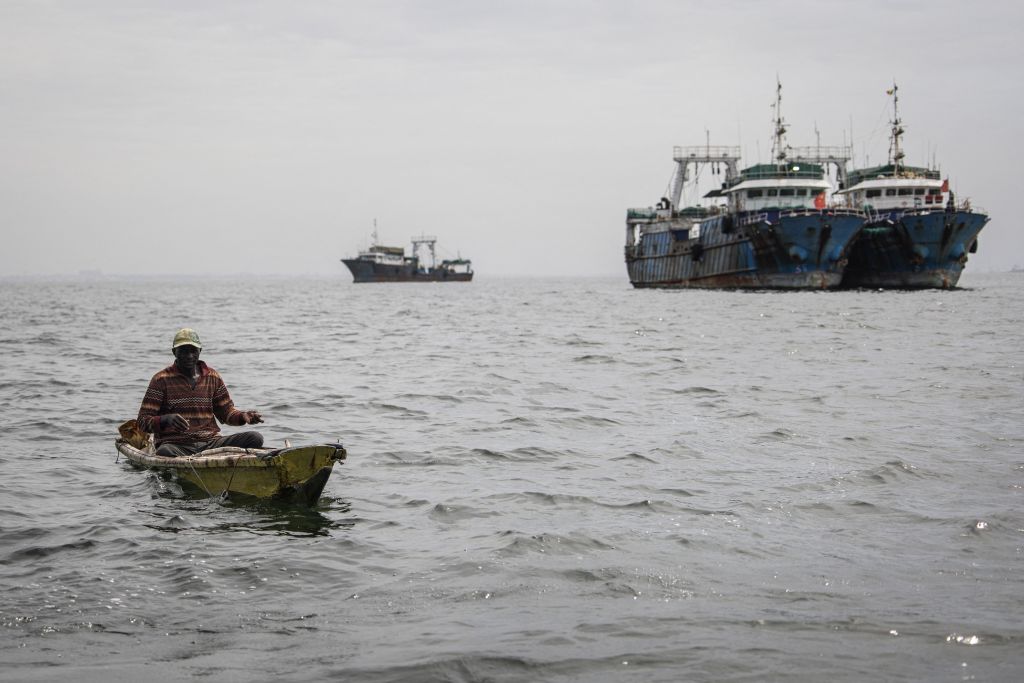New Report Sheds Light on ‘Dark’ Industrial Fishing Vessels
ADF STAFF
About 75% of the world’s industrial fishing vessels are not publicly tracked, with many of them hiding their positions at sea by turning off their automatic identification systems (AIS).
The practice, known as “going dark,” mostly is concentrated in West and North Africa and South Asia, according to a new report by Nature magazine. Researchers determined this by using artificial intelligence, collecting AIS data and analyzing 2 million gigabytes of satellite data from the European Space Agency between 2017 and 2021.
Global Fishing Watch spearheaded the Nature study.
“These previously invisible vessels radically changed our knowledge about the scale, scope and location of fishing activity,” Jennifer Raynor, a study author and a natural resource economist at the University of Wisconsin-Madison, wrote in The Conversation.
Vessels commonly go dark to cloak crimes, such as entering prohibited areas, conducting illegal transshipments at sea and using explosives to catch huge amounts of fish.
Africa loses an estimated $11.5 billion to illegal fishing annually, by far the most of any region globally, according to the Financial Transparency Coalition (FTC). Illegal, unreported and unregulated (IUU) fishing decimates fish stocks and threatens the livelihoods of the roughly 5.2 million people who work in the continent’s small-scale fisheries.
The scourge is perpetrated mostly by China’s distant-water fishing (DWF) fleet, the world’s worst IUU fishing violator.
China illegally fished in the exclusive economic zones (EEZ) of more than 80 countries with more than 10 million hours of fishing between 2019 to 2021, a new report by Investigative Journalism Reportika (Ij-Reportika) shows.
China’s DWF fleet began venturing far past its own EEZ after depleting its own fish stocks. According to the IUU Fishing Index, more than 60% of its vessels are involved in IUU fishing around the world. Illegal fishing also is linked to other sea crimes, such as piracy, human trafficking and drug smuggling.
The IUU fishing threat is most acute in West Africa. Considered the world’s epicenter for IUU fishing, the region loses an estimated $2.3 billion to $9.4 billion annually to IUU fishing, according to the FTC.
About 20% of illegally caught fish worldwide comes from waters near The Gambia, Guinea, Guinea-Bissau, Mauritania, Senegal and Sierra Leone, according to Ij-Reportika.
West African nations in late 2023 began creating a joint network to combat IUU fishing with the same underlying cooperation that reduced piracy in the Gulf of Guinea. The idea for the combined effort, known as “Blue Africa,” emerged at the first African Maritime Forces Summit held in Cabo Verde in March 2023.
The aim is to strengthen the region’s maritime law enforcement capacity, improve its maritime domain awareness, establish a legal framework to prosecute EEZ violations and establish interagency frameworks to connect the countries, according to the United States Naval Institute, which is helping coordinate the effort.
The Nature report also revealed extensive areas of previously unmapped fishing in North Africa, particularly in Moroccan and Tunisian waters. It also found that 21% to 30% of transport and energy vessel activity is missing from public tracking systems.
“We had an idea that we were missing a big chunk of the activity happening in the ocean, but we didn’t know how much,”
Fernando Paolo, a lead author of the study and a machine learning engineer at Global Fishing Watch, told New Scientist. “And we found that it’s a lot more than we imagined.”


Comments are closed.